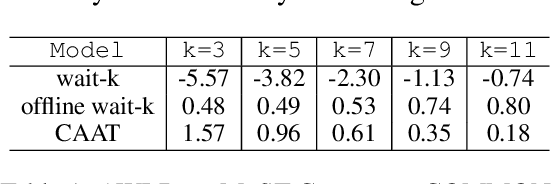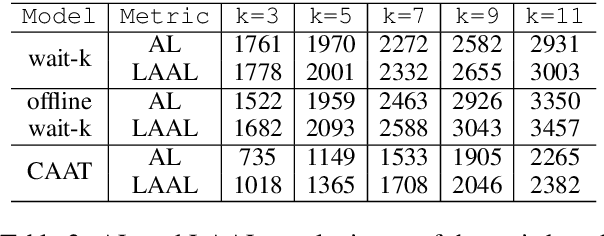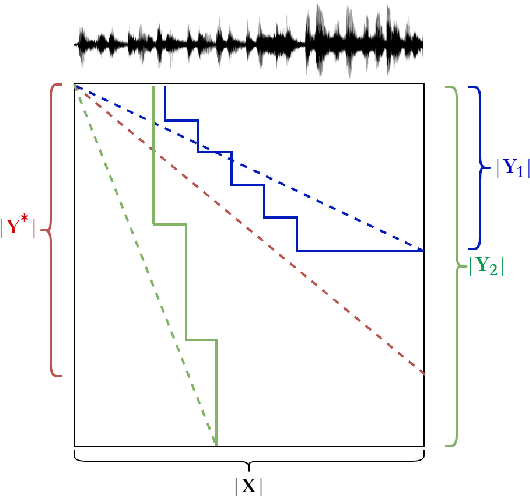Over-Generation Cannot Be Rewarded: Length-Adaptive Average Lagging for Simultaneous Speech Translation
Paper and Code
Jun 20, 2022



Simultaneous speech translation (SimulST) systems aim at generating their output with the lowest possible latency, which is normally computed in terms of Average Lagging (AL). In this paper we highlight that, despite its widespread adoption, AL provides underestimated scores for systems that generate longer predictions compared to the corresponding references. We also show that this problem has practical relevance, as recent SimulST systems have indeed a tendency to over-generate. As a solution, we propose LAAL (Length-Adaptive Average Lagging), a modified version of the metric that takes into account the over-generation phenomenon and allows for unbiased evaluation of both under-/over-generating systems.
* AutoSimTrans Workshop @ NAACL2022
 Add to Chrome
Add to Chrome Add to Firefox
Add to Firefox Add to Edge
Add to Edge